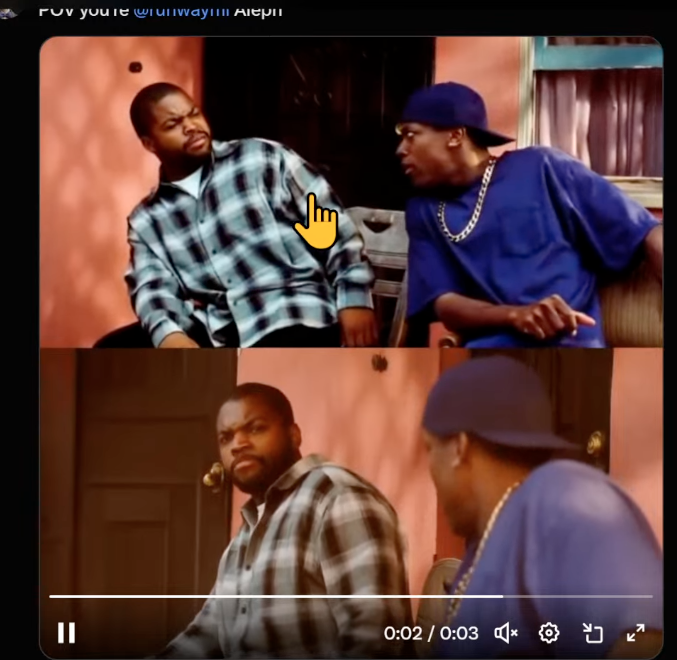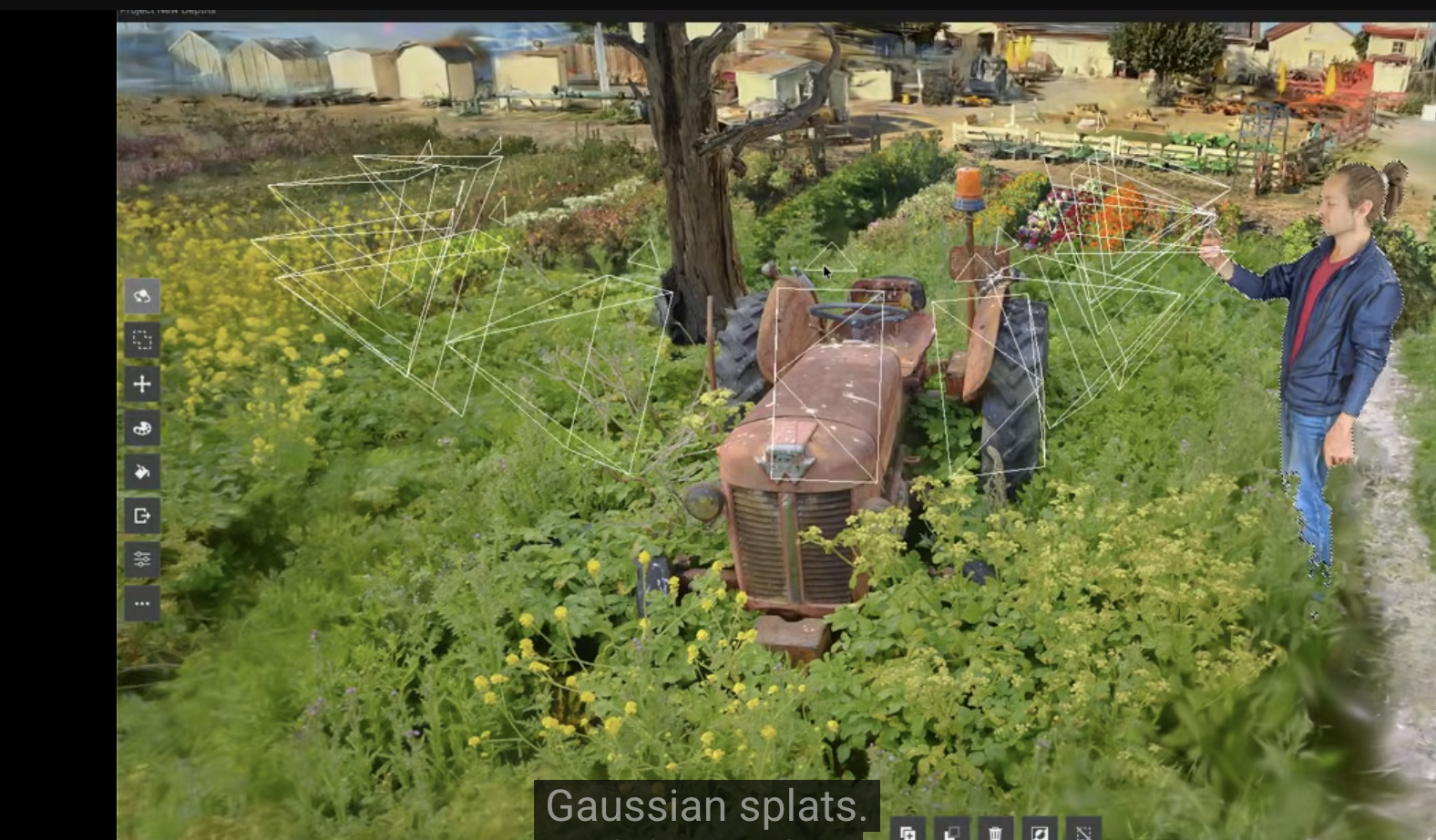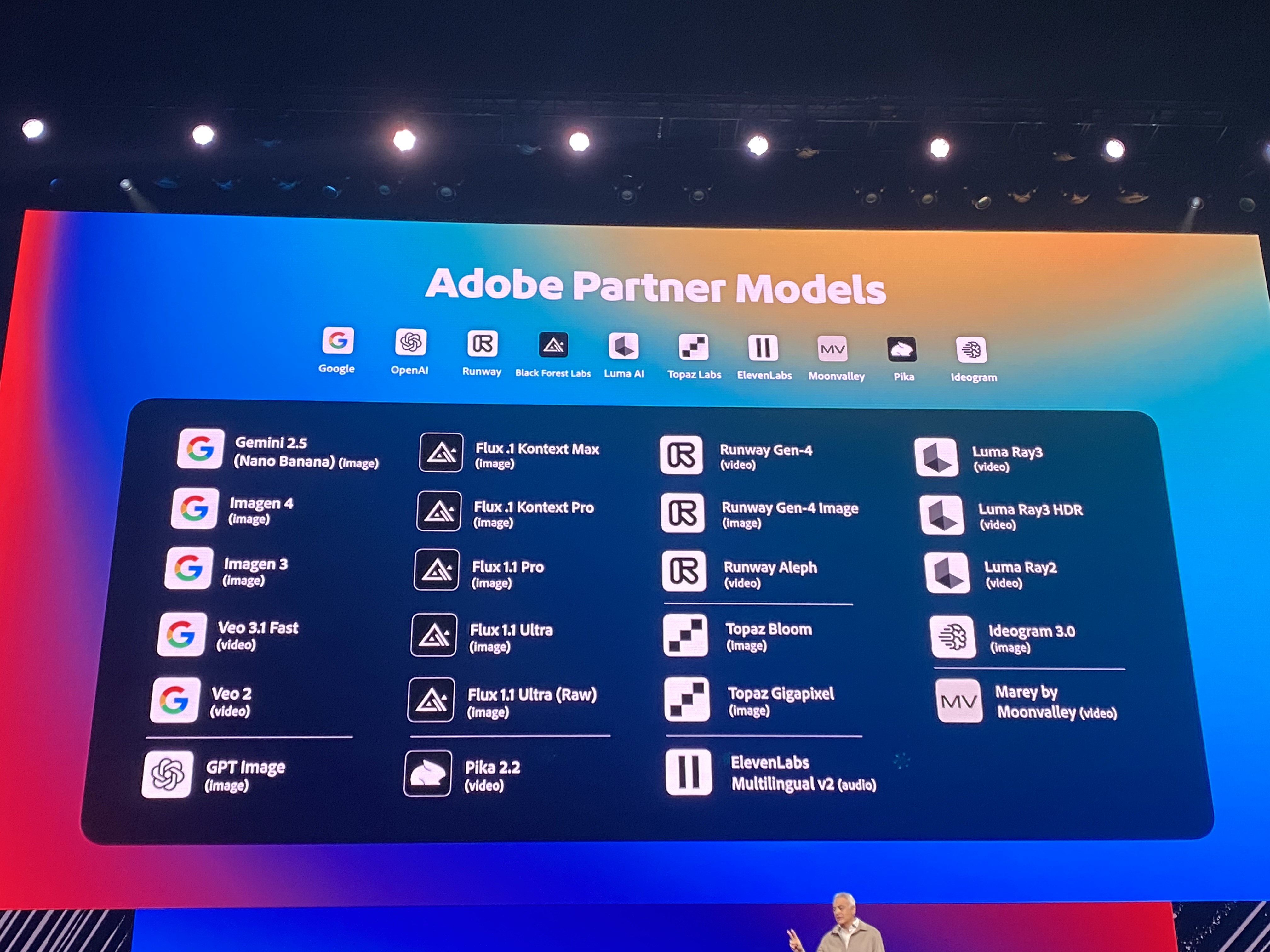AI just created full TV episodes—and you can star in them.
Remember when everyone lost their minds over AI generating a few seconds of video? Well, Fable Studio just casually dropped a new system called Showrunner that generates entire 22-minute TV episodes. We're talking about full South Park episodes with coherent plots, character development, and dialogue that actually sounds like the show.
Fable's “Showrunner” system uses a multi-agent simulation where AI characters live, interact, and develop relationships over time. Think The Sims, but the characters are writing their own TV show. The company literally describes itself as “building The Simulation”, referring to the theory that we’re all living in a simulation, if that helps explain the thinking.
And get this: Amazon also recently invested in the company. Amazon's Alexa Fund invested in Fable Studio just as Showrunner launched publicly, with the company's previous viral South Park AI episodes opening doors to meetings with Fox, Netflix, Paramount, and Sony.
The business model starts simple: initially free, then $10-$20 per month for credits to create hundreds of TV scenes (like Kling or other similar credit-based genAI tools). But CEO Edward Saatchi envisions something bigger—partnerships with major streamers like Netflix on paid add-ons for subscribers who want to remix their favorite shows.
In fact, Fable has one unnamed studio deal in place and is actively courting others, including Disney. Their pitch? Let fans extend franchises like "The Simpsons" or "Star Wars" without massive budgets, with revenue-sharing models where studios monetize dormant assets through user-generated hits.
The company launched with "Exit Valley," a "Family Guy"-style satirical comedy that pokes fun at tech execs like Elon Musk and Sam Altman. It's a "playable" show where people can add themselves to scenes or create new episodes—exactly the kind of personalized content that traditional studios can't match.
Here's an example of Exit Valley from Wes Roth and another from Justine Moore.
Here’s how it works under the hood (based on this paper from 2023): The system trained custom AI models on 1,200 South Park characters and 600 backgrounds, then uses GPT-4 to generate dialogue and storylines that feel authentic to the show's style.
- Foundational models: Dream Booth for training custom diffusion models, R-ESRGAN-4x+-Anime6B for AI upscaling, GPT-4 as the core language engine
- Training approach: "Dramatic fingerprint" extraction captures show-specific patterns, prompt-chaining simulates creative thinking across 14 distinct scenes per episode
- Architecture: Zero-delay voice buffering generates audio while characters speak, prompt graphs coordinate multi-agent interactions, staging and camera systems handle visual production
- Data collection: Real-time simulation captures character emotions, behavioral patterns, relationship dynamics, and environmental events to feed the generation process
- Latency solutions: Uses faster GPT-3.5-turbo for non-critical prompts, hides generation time during user interactions, buffers voice clips in advance
Here's where it gets wild:
- Users can insert themselves as South Park characters and become part of the storyline.
- The system generates episodes based on simple prompts like a title or major plot points.
- Characters maintain consistent personalities and remember past interactions.
- Each episode takes about 3 hours of “simulation time” to develop naturally.
As Nikunj Kothari pointed out, this is part of a massive shift in AI video generation. Consider similar efforts, like:
- Runway, with their new Aleph model that can change the angle or background of any scene, or create any scene for original characters (Justine Moore calls this “generative editing” and yeah, that tracks).
- DecartAI, who makes the Mirage system that can generate video overlays in real time (so wild).
- Pika Labs, who uses genAi to create viral “Pikaffects” and has been quietly building a social AI video app.
- And then there’s Google’s Veo 3 and Genie 2, as well as World Labs and upstarts like Odyssey, who are making interactive, playable generative worlds.

Most gen-AI video companies are racing towards what researchers call “world models”—AI systems that can generate entire virtual worlds on the fly.
Writer Nikunj Kotecha argues that we're heading toward “infinite worlds, each one generated uniquely for its inhabitant.” His vision is even more radical than Fable's: every pixel will soon be generated on the fly and deeply personalized to you. Where Fable focuses on episodic content, Kotecha sees entire realities reshaping themselves based on your mood and interests. Whoa, dude.
Why this matters: What makes Fable's approach different from other generators like Veo 3 is solving what they call the “slot machine effect.” Most AI tools give you instant, random results that feel like gambling (and the longer they generate, the more likely you are to lose; point in case is this demonic monstrosity). But Showrunner lets stories develop naturally through character interactions, making the creative process feel more intentional and less chaotic.
Where does this go from here? Imagine asking AI to rewrite the ending of Game of Thrones, or creating a sitcom where you and your friends are the main characters. This type of tech could create personalized entertainment experiences just like that.
Our take: Without question, we're moving toward a world where every piece of media can be customized to you personally. Your Netflix could soon generate episodes where you're the protagonist, with storylines tailored to your interests and sense of humor.
And if this technology scales, the entire entertainment industry could flip upside down.
Consider the following: Netflix spends $17B yearly on content. What happens when anyone can generate broadcast-quality shows? We can hear the pitch now: why watch someone else's story when you can generate your own?
Well, a couple reasons:
1. Culturally, people prefer stories from other people. The only reason these models work at all is because they’ve been trained on stories written by other people.
2. Technically, the challenge will be maintaining quality and avoiding what researchers call the “10,000 bowls of oatmeal problem”—where everything starts to feel the same (perhaps because of platonic representation hypothesis??).
This also connects directly to our recent analysis of Meta's $72B superintelligence bet, where Zuckerberg envisions AR glasses creating personalized experiences that enhance and enable our creativity (and eventually, usher in the metaverse).
Showrunner feels like one of those contradictory futures problems: in the future, will we want more solo experiences, or more communal ones? I tend to assume the latter.
Ask yourself this: What would you rather do? A) get together with a group of friends to watch a popular show (like, idk, Stranger Things), or B) watch a series custom-generated shows about you and your own friend group that you all got together and prompted, and now you prompt new episodes to watch every time you all hang. What would you pick?
Mayyyybe the latter, actually. But how sustainable is that? How long until the novelty of that fades? Maybe you can keep it up about as long as you can maintain a weekly Dungeons and Dragons schedule?
Realistically, though, its actually FOMO and zeitgeisty reasons that are often behind what drive us to watch things. If you see a new show is trending and keep hearing about it, it engages your curiosity, and makes you want to check it out (perhaps because of Mimetic desire).
Sure, Showrunner could replicate that experience a bit by making new episodes of your shows shareable on a platform like Netflix or YouTube or Twitch.
But unless you're a huge creator with a big following, nobody outside of you and your friend group will want to watch YOUR show (at least, not unless its good enough to break through). And anyway, you'd ALSO need to be much better at prompting stories (what did we used to call that?? Screenwriting???) than the average viewer to stand out.
Imagine being a Netflix creator, but with Spotify royalties. That's how the long tail of content creating tends to work out.
And did we all forget about the height of the streaming wars in 2022-2023? Back then, nobody was watching the same show because each major streaming platform (of which there were like, 8 or more) all released a flood of new shows. So inevitably, someone would ask you "have you watched X?" and you'd inevitably say, "No, what's it on?" and they'd reply with "Peacock" or "Paramount" or "Disney" or "Hulu" and you'd just shake your head and go "No, I don't have that one." Showrunner will be that, but like times 8 billion people.
Post-2022, it still seems like nobody's watching the same shows anymore, even years after that period. The exception would be live "event television" viewing, like sports or Love Island, that evoke that communal feeling of everybody watching the same show at the same time (because they literally are).
Think about the final few seasons of Game of Thrones, and how much hype and excitement there was around that time. It would take A LOT to recreate that magic with Showrunner. It's not impossible, but it kinda feels like it.
That said, Saatchi did say that in the Alpha testing, people putting themselves and their friends in shows was the surprise hit of the platform. So there's definitely an appeal there, especially if the platform licenses from IP that people actually know and like (right now there's just two fake shows to choose from).
And I can see the appeal of quickly being able to whip up parodies of what's happening in the news, especially if the tool provides more granular control over scene writing and dialogue (after all, Veo 3 is VERY popular for that reason; I think the fact that people wanted to put themselves in the videos shows people actually DO want control over the narrative, and don't want the AI to just make up everything for them).
So yeah, getting together to prompt a show featuring you and your friends could be fun, but like, what, one time? Or maybe it's really good, and it becomes a recurring weekly get together deal, and that's cool too (arguably the best case scenario for Showrunner).
And maybe once anyone, anywhere has the power to make shows, especially if making the shows comes with the option to stream them live on YouTube or Netflix for others to watch, then yeah, more people will get to live out their dreams of being screenwriters in some respect (just without the money, fame, or massive audience they wanted to come with that).
But for anything to really become a breakout hit, or sensation, it needs word of mouth, it needs FOMO, and it needs to be a communal experience. You need to want to watch it because OTHER people want to watch it. Otherwise, to quote Showrunner's CEO, "maybe nobody wants this."
Now, generative video games with infinite possible levels and worlds, like Saatchi is hinting at? That's an entirely different story... and one much more likely to work long term, IMO. With ever more powerful world models, like these genAI creators are developing, that actually starts to become possible.







